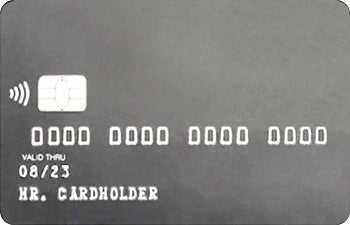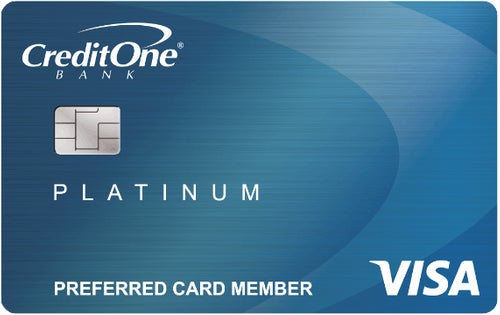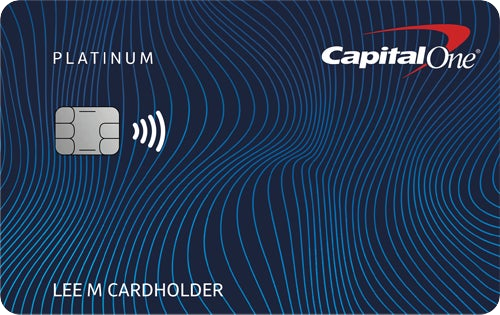'ZDNET Recommends': What exactly does it mean?
ZDNET's recommendations are based on many hours of testing, research, and comparison shopping. We gather data from the best available sources, including vendor and retailer listings as well as other relevant and independent reviews sites. And we pore over customer reviews to find out what matters to real people who already own and use the products and services we’re assessing.
When you click through from our site to a retailer and buy a product or service, we may earn affiliate commissions. This helps support our work, but does not affect what we cover or how, and it does not affect the price you pay. Neither ZDNET nor the author are compensated for these independent reviews. Indeed, we follow strict guidelines that ensure our editorial content is never influenced by advertisers.
ZDNET's editorial team writes on behalf of you, our reader. Our goal is to deliver the most accurate information and the most knowledgeable advice possible in order to help you make smarter buying decisions on tech gear and a wide array of products and services. Our editors thoroughly review and fact-check every article to ensure that our content meets the highest standards. If we have made an error or published misleading information, we will correct or clarify the article. If you see inaccuracies in our content, please report the mistake via this form.
The 5 best credit cards for bad credit: Low scores can't stop you




If you need a credit card for bad credit, we found the top choices for you. There are a number of excellent options available to you if your credit scores are on the low end of the scoring scale -- or if you have no credit history at all. Each will help you rebuild your credit as you borrow and repay.
For most people, the best credit cards for bad credit are secured credit cards. A low credit score indicates high credit risk, so the cash deposit you put down guarantees the credit line which lowers the issuer's risk level. However unsecured cards also exist for consumers with bad credit. In exchange for the credit line, they tend to offset their risk level by adding fees.
Each of the credit cards below have flexible credit requirements so you don't need a good credit score to qualify. You won't need to worry about being denied, which would result in an unnecessary hard inquiry landing on your credit report, potentially dragging your scores down even further. Once you have the most suitable credit card for your needs and circumstances, you will enjoy the convenience of safe charging and credit building. Some even offer rewards to sweeten the deal. Below are our best credit cards for poor credit.
- Earn 2% cash back at Gas Stations and Restaurants on up to $1,000 in combined purchases each quarter, automatically.
- Earn unlimited 1% cash back on all other purchases.
- Earn 2% cash back at Gas Stations and Restaurants on up to $1,000 in combined purchases each quarter, automatically.
- Earn unlimited 1% cash back on all other purchases.
You don't have to sacrifice rewards with the Discover it Secured credit card. Not only are the credit requirements forgiving, but you will be able to earn cash back rewards with every charge you make. Discover also offers a cash back match program that doubles all of the rewards you earned by the end of the first year.
Another compelling feature of this card is that Discover automatically reviews your account seven months after opening the account. If you have treated this card responsibly by making all of your payments on time and keeping the balance under control, it will convert into an unsecured credit card. At that stage you will have your security deposit back to use or save, as well having an unsecured credit card without needing to apply for it.
Another great feature is that it gives you monthly access to your FICO score. This benefit allows you to track your scoring progress. Use this card the right way, and you can watch these important scores increase over time.
Pros
- No credit score requirement
- Cash back rewards
- No annual fee
- Automatic transition to unsecured card
Cons
- Credit line will be low if your security deposit is low
- High APR
- Few other perks associated with rewards cards

Discover it® Secured Credit Card
- Earn 1% cash back rewards on eligible gas, grocery purchases and mobile phone, internet, cable and satellite TV services. Terms apply.
- Earn 1% cash back rewards on eligible gas, grocery purchases and mobile phone, internet, cable and satellite TV services. Terms apply.
Don't despair if your credit is very damaged; the Credit One Bank Platinum Visa for Rebuilding Credit card was developed with you in mind. Because it is a Visa, the card is accepted almost anywhere in the world (though be careful when using it overseas, as the foreign transaction fees are high).
This card will be particularly appealing if you do not have the cash to put down as a security deposit. It is unsecured, so it doesn't require collateral. Although the credit line will be low in the beginning, Credit One has a policy where the bank reviews your account activity and will give you a gradual increase if you use the account appropriately. You will be able to check your Experian credit score for free, too.
It also offers a basic rewards program. Depending on what you purchase with the card, you could earn 1% cash back. As long as you keep the balance to zero, this means you can profit a little as you rebuild your credit rating. However, the annual fee is on the high side, and it goes up after the first year.
Pros
- No security deposit required
- Gradual credit line increase with positive usage
- Cash back rewards
Cons
- Annual fee that increases after the first year
- Steep foreign transaction fees
- Initial low limit restricts charging power

Credit One Bank® Platinum Visa® for Rebuilding Credit
If you're looking for a credit card that has rock bottom fees, the Capital One Platinum Secured Card will be one of your top choices. With no annual fee, balance transfer fee, and foreign transaction fee, you won't pay more than is necessary.
Though there is no penalty APR, the APR it starts out with for purchases is definitely on the high side, making it expensive if you were to roll balances over from month to month.
A great feature of this card is that the initial credit limit can be higher than your security deposit. For example, if you put down $49 as security, Capital One may provide you with a $200 credit line. The bank will review your account history after six months, and if you have managed the card responsibly, your credit line should increase without needing to add to your security deposit. In addition, you can eventually reclaim your deposit, which will be returned to you as a statement credit.
Pros
- No annual fee
- Credit line can be higher than deposit
- Easy qualification terms
Cons
- No rewards program
- High APR

Capital One Platinum Secured Card
Navy Federal nRewards Secured Credit Card
Best for credit union members seeking a path to unsecured credit
If you qualify for membership into the Navy Federal Credit Union and want a secured card with exceptionally low fees, a healthy rewards program, and a direct path to an unsecured credit card, the Navy FCU nRewards Secured Credit Card is an amazing option. You don't need a high credit score to qualify. Just join the credit union with a small minimum deposit.
Like many secured credit cards, the credit line you get will match your initial deposit. However, when you demonstrate that you can use the card well, in just three months the credit limit may exceed your deposit. After six months of paying on time and maintaining a low or no revolving balance, you will be eligible for the unsecured version of the card without having to apply for it -- and your deposit will be returned to you.
Other benefits of this card include a low APR and no annual or foreign transactions fees, making this a very inexpensive product. As you charge, you will earn points that you can redeem for cash, gift cards, and merchandise.
Pros
- Low APR
- No annual, foreign transaction, balance transfer, or cash advance fees
- Raised credit limit in three months
- Converts to unsecured card in six months
Cons
- Must become a credit union member
- Cash deposit required
What's the best credit card for bad credit?
The Discover it Secured credit card is the best card for bad credit because it combines the best of all worlds. You can qualify with a low credit score, can earn impressive rewards as you charge, and won't be charged excessive fees. After seven months of responsible use, it converts to an unsecured card -- and you'll get your deposit back. You will also receive free access to your FICO Score on a monthly basis, allowing you to track your progress with the most widely used credit score.
Credit Cards for Bad Credit | Main Features |
Discover it Secured Credit Card |
|
Credit One Bank Platinum Visa for Rebuilding Credit |
|
Capital One Platinum Secured Credit Card |
|
Petal 1 Visa Credit Card |
|
Navy Federal nRewards Secured Credit Card |
|
What do the best credit cards for bad credit have in common?
- They have low annual fees. Save your money by selecting a card that doesn't charge you each year. The top options charge $0 annual fees.
- They have good cash back rewards. Be rewarded when you spend money on gas, restaurants, groceries, and more. The best cards for poor credit give up to 2% cash back.
- Generally, they are secured. The best credit cards for bad credit are often secured cards. Using one lowers the issuer's risk level and tends to be the most viable options for those with low credit score. In addition, secured credit cards have the best approval odds for those with poor credit.
Which one is the right credit card for you?
After reviewing all of the card options presented, landing on one can still be confusing. To help you decide:
- If you can tie up a few hundred (or more) dollars for a period of time, a secured credit card may be the best option. In exchange, you may get lower fees and a better rewards program.
- If you don't have or want to set the funds aside, go for an unsecured card. In exchange, you may pay higher fees and not have the same (or any) rewards program.
- If you want to track credit scoring progress, look for a card that gives you access to credit scores.
- If you can become a credit union member, look for their credit cards that were designed for members with bad credit, since they can have preferable terms.
- If you know you are a good credit risk but have no credit history proving that you are, look for a card that uses non-traditional qualification methods.
What is the target credit score for these cards?
If your FICO score is between 300 - 639, you can rebuild credit and save money using a credit card for bad credit. However, there are cards available that don't required a credit check, which is the best option if you don't have a traditional credit score.
Is bad credit the same as no credit?
For credit qualification purposes, bad credit and no credit are similar. Bad credit means that you have had credit problems in the past, such as missed payments, high debt compared to credit card limits, and accounts that have gone into collections. Based on your behavior, you appear to be a risky borrower. No credit, on the other hand, means you have not used credit products that show up on your credit report. Credit scoring companies have no information to put into their risk scoring models. Therefore credit issuers don't know if you are a good credit risk, which makes you a risky borrower.
Do secured credit cards show up as "secured" on my credit report?
No. If you get a secured credit card, you will see that it is reported to the credit bureaus just as a credit card account. It will list such information as the date it was granted, the credit line, the current balance, and your payment history. The fact that you have a secured card will not be included in your credit scores.
How long should I keep the credit card I opened when my credit was bad?
For credit scoring purposes, a credit card that you've had and used for a number of years is positive. If the card has low fees and converts to an unsecured card, you may want to keep it, as it will benefit your scores. However, if you want your deposit back and the fees are too high for your liking, you can apply for a better credit card when your scores are higher. After you are approved, you may want to close the card you opened when your scores were nonexistent or very low. As long as you use your new card responsibly, your scores should bounce back from any point loss you would have experienced after closing the old card.
How did we choose these credit cards?
To compile the best credit cards for people with bad credit, we looked for credit cards that did not not require high credit scores. We then selected the accounts that have benefits, such as rewards programs and the ability to have the card transition into an unsecured card after a time period of positive use. All the cards would also have to report to the three major credit bureaus, so the user could create positive credit histories.
Are there alternative credit cards worth considering?
In addition to the credit cards listed in this guide, there are others worth considering. Each of the cards below have positive qualities for the credit applicant with no or low credit scores:
- Capital One QuicksilverOne Cash Rewards Credit Card: Best for people with fair credit
- Discover it® Student Cash Back: Best for college students who haven't yet established credit
- OpenSky Secured Visa: Best for people with very poor credit